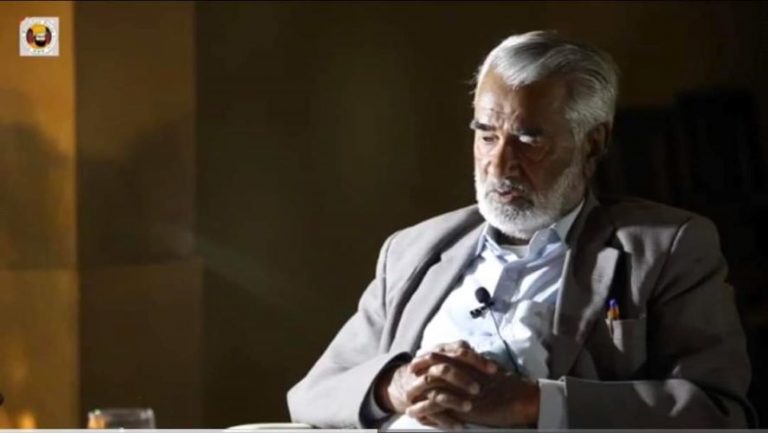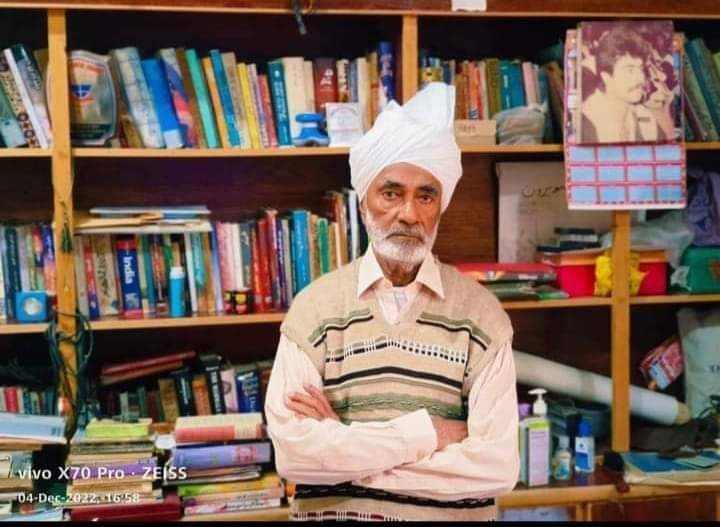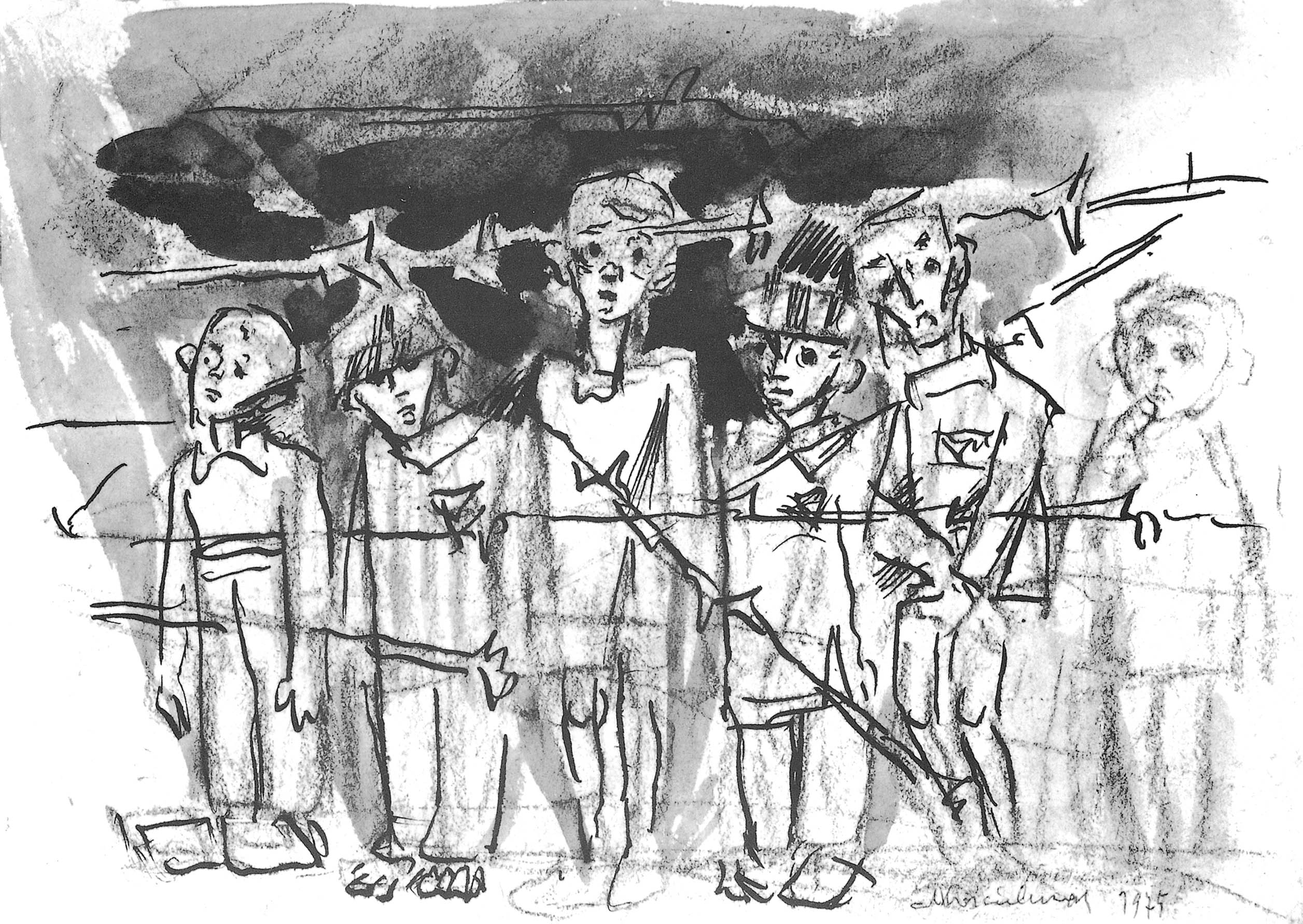
Historian, Poet and Social Worker Allah Warayo Behan spent 10 years of his life in Concentration Camps
Farooq Sargani
The Hur Movement is a history of indigenous people of Sindh. But there is a lament: those individuals who sacrificed their lives for freedom remained in Concentration Camps even after the partition and creation of Pakistan. In this article, I will discuss the life of a prisoner Allah Warayo Behan, who spent ten years of his life in a British Concentration Camp. He opened his eyes in a small village ‘Gurang’ near Sanghar city of Sindh. It was the period when the adherents of Pir Pagaro began the guerilla war against the British Empire. His father Aghu Khan Behan, too was a follower of Pir Pagaro. The British government had previously enforced a Criminal Tribes Act and established Concentration Camps at several places and, afterward, martial law was imposed in 1942 in certain parts of Sindh.
The British authorities kept the Behan family in the concentration camp of Nawabshah, where he used to go to school in the settlement. In the early morning, they would play the anthem of the Queen of England. Allah Warayo Behan was the only prisoner who did not forget the lifestyle of concentration camps. Behan, an eminent writer and poet, narrated in detail all the atrocities of the British colonial rulers in his book titled “Qaid Kashala Zindagi.” One can understand the Hur movement and brutality of the British Empire by reading this book.
Read: The Hurs: Once a Criminalized Tribe in Sindh
“There was no facility in the concentration camp. Even there was no place for a toilet. Many people died in the camp due to inhuman conditions. Finally, permission was granted, and our whole family moved to another settlement in Shahdadpur and later to another one near Jhol town,” Behan writes in his book.
There was no facility in the concentration camp. Even there was no place for a toilet. Many people died in the camp due to inhuman conditions
“Unfortunately, even after independence, the Hur community didn’t get freedom and remained in concentration camps until April 1, 1952. After the restoration of Gaadi and installation of his son as Pir Paharo in February 1952, it was declared that the Hur community people will be freed on April 1. And at midnight, when the people heard the bell of freedom, they rushed to their villages, but there was nothing; all the lands were given to the Bugti tribe and retired military officers of Punjab,” he writes.
 Subsequently, Allah Warayo Behan went to their ancestral village. There was nothing left; all the houses were devastated by the British army. With a broken heart, he settled in Jhol, and spent his entire life there.
Subsequently, Allah Warayo Behan went to their ancestral village. There was nothing left; all the houses were devastated by the British army. With a broken heart, he settled in Jhol, and spent his entire life there.
He was a person who influenced the society of Sanghar and developed the intellectual class among the Hur community. With government aid, he visited foreign countries including Australia and Malaysia. Most of his writings relate to the Hur movement. He developed the anti-Lambrick stance. H.T. Lambrick was the surviving officer of the British Army and very cruel in nature. Although, in later life, Lambrick wrote many books on the history of Sindh, but he was so cruel that he burned the villages of Hurs and called them criminals as according to him they disturbed the law and order in Sindh.
Unfortunately, even after independence, the Hur community didn’t get freedom and remained in concentration camps until April 1, 1952.
In the 1980s, Lambrick wrote the novel “The Terrorist” trying to prove that the Hurs were involved in criminal activities. Actually, the Hurs were the freedom fighters who fought for freedom for their motherland.
Allah Warayo Behan was emotional about Hur movement. Being a nature lover, he struggled to save the Makhi forest. According to Allah Warayo Behan, “The Makhi forest was half devastated during the British era and the remaining parts of the forest were destroyed by the government in the name of Chotiari Dam. Now the whole region of legendary Mukhi Forest, has come under the Chotiari Dam. It has destroyed the natural life and ecosystem.
An interesting thing is that Behan was against the feudal class. He was a great writer, a poet, a liberal thinker, a progressive social worker, and more of a kind-hearted humanist. In short, Behan struggled to be seen as a writer, teacher, trainer, poet, and social activist. Most of his writings were on the Hur movement, published in various magazines. He also inspired others to write about their memories of concentration camps.

Read: The British savagery against Hur Community in Sindh – Part I, Part-II and Part-III
When late writer Atta Muhammad Bhanbhro wanted to get published the translation of Lambrick’s book “The Terrorist”, he refused to publish the book because it was based on false stories. Behan was a committed person; he started searching for archival material and conducted interviews with those people who were actually part of the movement. He come up with a rational opinion on the Hur Movement and proved that Lambrick was a cruel man.
As a teacher, Behan went far away to teach in remote areas, and sometimes children sitting under the tree to get an education. He found talented students, but due to poverty, they could not proceed further to get education. Sometimes Behan felt depressed about those children.
As a social worker, he started the ‘Dharti Dost Sangat’ movement for the protection of wildlife and the legendary Mukhi forest. According to Professor Muhammad Umar Chand, he was an amazing writer, traveler, and poet. His famous book is “Ranga Rang Malaysia”, an adventure in Malaysia. In his poetry book “Aedo Dard Ameek”, he describes his love for nature and motherland and criticizes the elite class.
One more thing in his poetry is a memory of those years when he was in concentration camps and his most adorned poem is ‘Awaiting the dawn’.
We, the people of darkest country,
Saw the enlightening dreams here;
Someday,
The light of the sun came to us.
He was inspired by Peter Kropotkin’s “Message to Youth”.
Behan revolutionized the society of Sanghar by producing writers, poets, journalists, intellectuals, and scholars in various fields. He established the branch of ‘Sindhi Adabi Sangat’ in Jhol and also joined the gatherings of the Sanghar branch.
As a social worker, he started the ‘Dharti Dost Sangat’ movement for the protection of wildlife and the legendary Mukhi forest.
Allah Warayo Behan, who was born when the Second World War was going on and Sindh was under the tyrannical rule of the British Empire, struggled against the One Unit and Kalabagh Dam.
We lost Allah Warayo Behan on September 25, 2023, but he will remain in the hearts of people, and his contributions in the fields of literature and history will enlighten new thinkers.
Read: Policing Insurgency – The Hurs of Sindh
_____________
The author is a student of History and Archaeology.